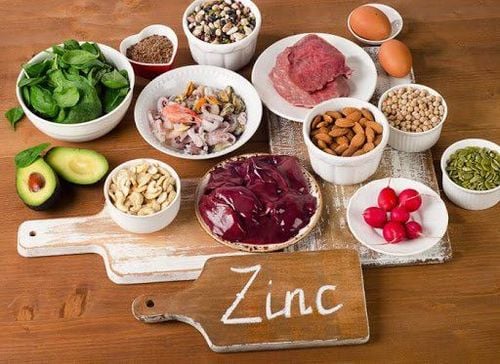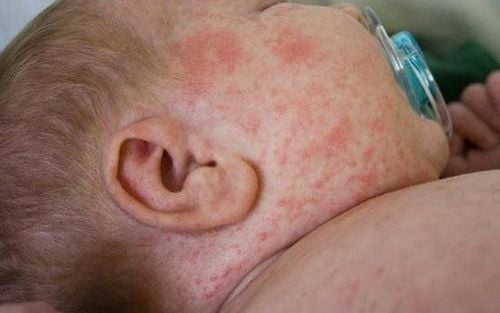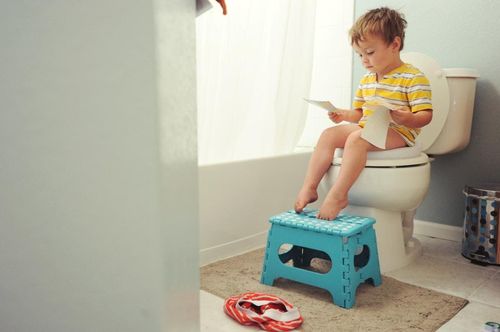A 5-year-old often burping may sometimes be due to the normal accumulation of air in the stomach, but it can also be a warning sign of some gastrointestinal diseases. Therefore, parents need to carefully observe the symptoms to take the child to see a doctor early, helping to accurately determine the problem the child is facing.
1. What is Burping? Why Does a 5-Year-Old Often Burp?
A child often burping can be due to the normal digestive process of the body or some other medical conditions. Specifically:
1.1. The Digestive Process of the Body Essentially, burping is not dangerous to health as it is the result of air entering the body when chewing and swallowing food. After that, the air can leave the body. Burping is a condition of the upper digestive tract, a normal process when air accumulates inside the stomach. This air can then be burped back up through the mouth. Thus, a child burping in this case is completely normal.
1.2. Some Stomach Conditions
A 5-year-old often burping, and sour burps can also be due to some upper gastrointestinal conditions. These include:
- Gastroesophageal reflux disease (GERD)
- Functional dyspepsia
- Gastritis
- Peptic ulcer disease
To diagnose burping as a medical condition, it is necessary to perform a gastroscopy and test for Helicobacter Pylori (HP) bacteria. HP bacteria are one of the most common causes of gastritis and peptic ulcers.
1.3. Other Causes of Frequent Burping in a 5-Year-Old
- Diarrhea: Causes the child to lose electrolytes (especially potassium) through stool, leading to bloating, abdominal distension, and burping.
- Constipation: Causes stool retention, bacteria produce gas in the colon, leading to bloating and gas retention.
- Intestinal Parasite Infection: Causes abdominal distension and burping.
- Poor Food Hygiene: The child experiences bloating and burping due to consuming contaminated or spoiled food.
- Other Issues: Irritable bowel syndrome, reduced intestinal motility, lactose intolerance, forcing the child to eat too much or meals too close together.

2. What to Do When a Child Often Burps?
If burping is part of the normal digestive process, no treatment or prevention is needed.
If burping is related to stomach conditions caused by HP bacteria, parents need to pay attention to the following issues:
- HP bacteria are very easily transmitted, especially when eating food that has not been cleaned or cooked thoroughly, drinking contaminated water, not washing hands before eating, kissing, sharing food or toothbrushes with others. Therefore, parents need to ensure hygiene for the child in eating, living, and interacting with others.
- When a child has stomach conditions, they often show symptoms such as bloating, burping, abdominal pain, nausea, vomiting, weight loss, and loss of appetite. Parents need to pay close attention to these signs to take the child for timely examination and treatment.
If a 5-year-old often burps due to other causes such as diarrhea, constipation, intestinal parasite infection, or inappropriate eating habits, parents need to thoroughly treat the underlying cause in the child, combined with adjusting the diet in a more scientific direction.
3. Ways to Reduce Discomfort for the Child Due to Bloating and Burping
- Massage the child's abdomen: Parents should regularly massage the child's abdomen to reduce the amount of air in the stomach, helping the child feel more comfortable. When performing, parents gently use their fingers to rotate in a clockwise direction from the navel outward.
- Apply a warm compress to the child's abdomen: Parents can take a handkerchief, dip it in warm water, wring it out, fold it, and place it on the child's abdomen. The warmth and weight of the warm cloth will help reduce the discomfort of bloating for the child.
- Supplement with essential micronutrients: Such as zinc, selenium, chromium, vitamins B1 and B6, ginger, acerola extract (vitamin C), to help the child improve taste, strengthen immunity to reduce minor illnesses and digestive issues.
A 5-year-old often burping can be a warning sign of gastroesophageal reflux disease or other conditions. Therefore, if the child shows symptoms of bloating, abdominal distension, and discomfort, parents should take the child to see a doctor immediately for timely diagnosis and treatment.

Gathering a team Leading pediatricians: Including leading experts, highly qualified (professors, associate professors, doctoral, masters), experienced, have worked in major hospitals such as: Bach Mai, 108.. The doctors are well-trained, professional, have a heart - reach, understand young psychology. Besides domestic pediatricians, the Department of Pediatrics also has the participation of foreign experts (Japan, Singapore, Australia, USA) who are always pioneers in applying the latest and most effective treatment regimens. . Comprehensive services: In the field of Pediatrics, Vinmec provides a series of continuous medical examination and treatment services from Newborn to Pediatric and Vaccine,... according to international standards to help parents take care of their baby's health from birth to childhood. Advanced techniques: Vinmec has successfully deployed many specialized techniques to make the treatment of difficult diseases in Pediatrics more effective: neurosurgery - skull surgery, stem cell transplantation blood in cancer treatment. Professional care: In addition to understanding children's psychology, Vinmec also pays special attention to the children's play space, helping them to play comfortably and get used to the hospital's environment, cooperate in treatment, improve the efficiency of medical treatment.













